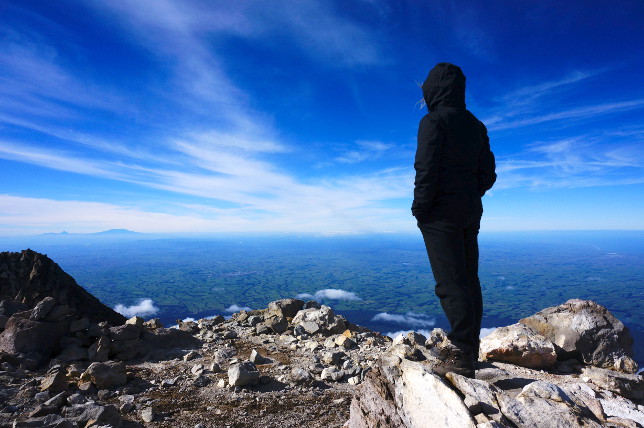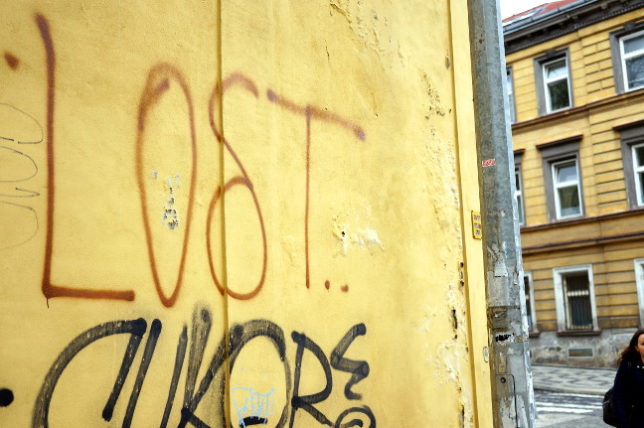It’s time to share some of my travel experience with you: Up to now I took you along some of my adventures, but now I’d like to share some hands-on guidance with you. A little warning ahead: Travelling could change your life!
1. Travel Guides Are Great—Local Research is Better
Many times, I thought I was properly prepared for a trip. I might even have bought a travel guide, read blogs, and made lists. But when I arrived? Everything was different. I had to improvise.
Sometimes the hiking trail I had planned was closed to the public. Sometimes the weather had other plans. And sometimes that well-researched tourist attraction just didn’t appeal to me anymore. There’s always something.
So yes—a travel guide can be helpful. But don’t rely on it too much. Stay flexible and improvise locally. It’s good to have a rough idea of the public transport system, currency, language basics, and expected weather.
Everything else? You’ll figure it out when you get there. Talk to the locals. Find out about the particularities of the area from the people who know best. I prefer to plan an extra day or two to settle in and allow more time for local planning and exploration.
2. Don’t Schedule Your Whole Trip
You are creating memories through unique experiences—whether it’s stumbling upon a hid en square in a bustling city or discovering a less frequented trail in the national park.
These experiences just “happen” to you. You can’t plan an adventure—otherwise it’s not an adventure anymore. An adventure is “an unusual, exciting, and possibly dangerous activity, such as a trip or experience, or the excitement produced by such an activity” (source).
Basically this is what I love the most about traveling: each journey offers the chance to encounter the unexpected.
“Plans are made to be changed” 😉
If you have a strict plan, there is no room for unforgettable memories. A lot of times I have one rough destination or goal (e.g., hiking in Durmitor National Park), and then I just go for it, following the breadcrumbs—the little pieces of information I have.
This approach often leads me to unexpected detours that turn into the most incredible experiences.
Leave room for spontaneity. This way you also learn to listen to your intuition. Which brings me to the following advice:
3. Follow Your Intuition (And Not Google Maps)
Do you know this feeling of being overwhelmed by a new place? Imagine you are on San Marco Square in Venice, the most popular square of the city. You are surrounded by hundreds of people from different backgrounds: Tourists are taking photos, families are eating ice-cream, street vendors are trying to sell selfie-sticks; different smells and noises are catching your senses. The busyness of the place is demanding your attention.
This is the moment, when I put my map aside. I just follow my intuition. Automatically it guides me to places that attract me – the more quiet corners. This way sometimes I may miss some famous sights, but I discover the most peaceful sunsets of a town or the secluded swimming spot just behind the city wall.
4. Forget About Your Standards
A lot of people think they can’t travel on a budget because they’re “just not the type” for basic accommodation or simple food. But in my opinion, that’s the first mindset that needs to change if you really want to experience what travel is about.
You won’t have real adventures, connect with locals, or meet fellow travelers if you stay inside the hotel bubble.
So go find yourself a hostel. If the shower isn’t sparkling clean – don’t overthink it. Jump in, get out, move on. Who knows? You might even boost your immune system.
5. Get up Early
Yes, it’s a no-brainer: the earlier you get up, the more of the day you have to explore. Sure, sometimes it’s okay—even necessary—to sleep in. Especially when you’re travelling long-term, you sometimes need a break. But isn’t it the best feeling to fall into bed after a long day full of impressions, encounters, and unexpected detours?
The early bird catches the worm. And while the late riser might still catch a croissant, the early bird gets something far more magical: The first light hitting a quiet city square. A mountain peak with no one else in sight. The peaceful stillness before the world fully wakes up.
That’s a kind of luxury you can offer to yourself without paying anything.
6. Immerse Yourself Socially & Culturally
Talk to people. Open up. Unbiased conversations are the best opportunity to get to know the country and its people better. Even if you’re travelling in a group: make space for others. Talk to strangers who feel like they might be on your wavelength. What’s the worst that can happen? Exactly – nothing. You get the chance to broaden your horizon. Getting to know travelers from other countries is also a way to learn about the rest of the world. So take the chance to immerse yourself in authentic exchange.
Let the world surprise you – one conversation at a time.
Last But Not Least….
Be prepared – Travelling could change your life! No matter if you’re spending two weeks in Portugal or travelling through Southeast Asia for six months – make the most of your journey.
Be curious. Stay open. Let go of the plan – life might surprise you. If you dive deep into a new culture you might discover new ways of being. Because the real treasures of travel aren’t always visible on the surface or to be found in your travel guide – they reveal themselves when you slow down, open up, and truly connect with the moment.



Six ordinary travel tips include researching your destination, packing light, being aware of your surroundings, having extra cash, staying connected, and learning a few basic phrases in the local language. These tips can help make your trip smoother and more enjoyable.
Hi Maksud Sumon, thank you for adding those useful tipps! Yes, my focus was less on the practical things and more on the attitude you travel with.